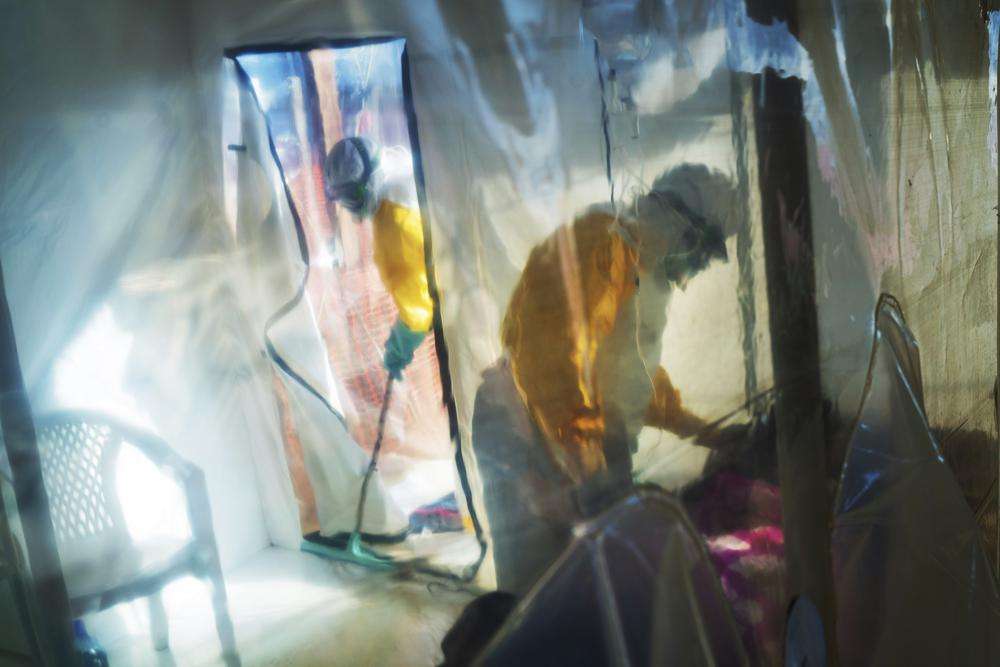A family of viruses, already endemic in wild African primates and known to cause deadly Ebola-like symptoms, is “poised” to jump to humans and become a new pandemic for animals and people. This is what is warned this Friday by an investigation led by the University of Colorado, in Boulder, and published in the magazine Cell.
This arterivirus, considered a critical threat to macaque monkeys, has not yet infected any humans but the authors (who compare it to HIV, which originated in African monkeys) call for vigilance.
“Primate hemorrhagic fever-causing arteriviruses are poised for spillover to humans”@Sara_Sawyer_, @NIAIDNews @NIH Jens Kuhn
Read more in @cellcellpress: https://t.co/xRqqVb8yZa
— Cell Press (@CellPressNews) September 30, 2022
“The world health community could prevent a new pandemic if it now monitors this arterivirus in animals and humans,” according to the study. “We should pay attention to it,” warns Sara Sawyer, lead author of the study and molecular biologist in Boulder.
“This animal virus has figured out how to gain access to human cells, multiply and escape some of the important immune mechanisms that we would expect to protect us from an animal virus. That’s pretty weird,” Sawyer warns.
Although there are thousands of viruses circulating among animals around the world, most do not cause symptoms, but in recent decades, an increasing number of them have jumped to humans, wreaking havoc on the immune system such as Respiratory Syndrome. Middle East (MERS) in 2012, the Severe Acute Respiratory Syndrome coronavirus (SARS-CoV) in 2003, and SARS-CoV-2 (the cause of covid-19) in 2020.
For 15 years, Sawyer has used laboratory techniques and tissue samples from wild animals around the world to explore which animal viruses may be next to jump to humans.
In the latest study, she and first author Cody Warren, then a postdoctoral fellow at the University of California BioFrontiers Institute, focused on arteriviruses, which are common among pigs and horses but poorly studied among non-primates. humans.
They studied the simian hemorrhagic fever virus (SHFV), which causes a deadly disease similar to that of the Ebola virus and has caused deadly outbreaks in captive macaque colonies since the 1960s.
The study has shown that a molecule, or receptor, called CD163, is what allows simian arteriviruses to cause infection in an organism.
To their surprise, through some laboratory experiments, the authors discovered that the virus was also extraordinarily adept at latching onto the human version of CD163, entering human cells, and quickly making copies of itself.
Like the human immunodeficiency virus (HIV) and its precursor, the simian immunodeficiency virus (SIV), simian arteriviruses also appear to attack immune cells, disabling the main defense mechanisms and establishing themselves in the body for the long term .
“The similarities are profound between this virus and the simian viruses that gave rise to the HIV pandemic,” says Warren, now an associate professor at the Ohio State University College of Veterinary Medicine.
Although the research says that a new pandemic “is not imminent” and there is no reason to be alarmed, it calls on the global health community to prioritize the study of these simian arteriviruses, develop blood antibody tests to detect them and monitor human populations that have close contact with carrier animals.
“That we have not yet diagnosed an arterivirus infection in humans does not mean that no human has been exposed. We just haven’t looked for it,” warns Warren.
Warren and Sawyer recall that HIV, a virus that likely originated from infected nonhuman primates in Africa, then jumped to humans sometime in the early 20th century, was also unheard of in the 1970s.
They design a mask capable of detecting surroundings with people infected by coronavirus
When it began killing young men in the 1980s in the United States, there was no serology test and no possible treatment.
For Sawyer one thing is certain: there will be new viruses that will jump to humans and cause disease. “COVID has been the last to do it”, but if a virus is discovered that could be a threat, “we can pay attention to it and get ahead of it” before a new pandemic breaks out.

















